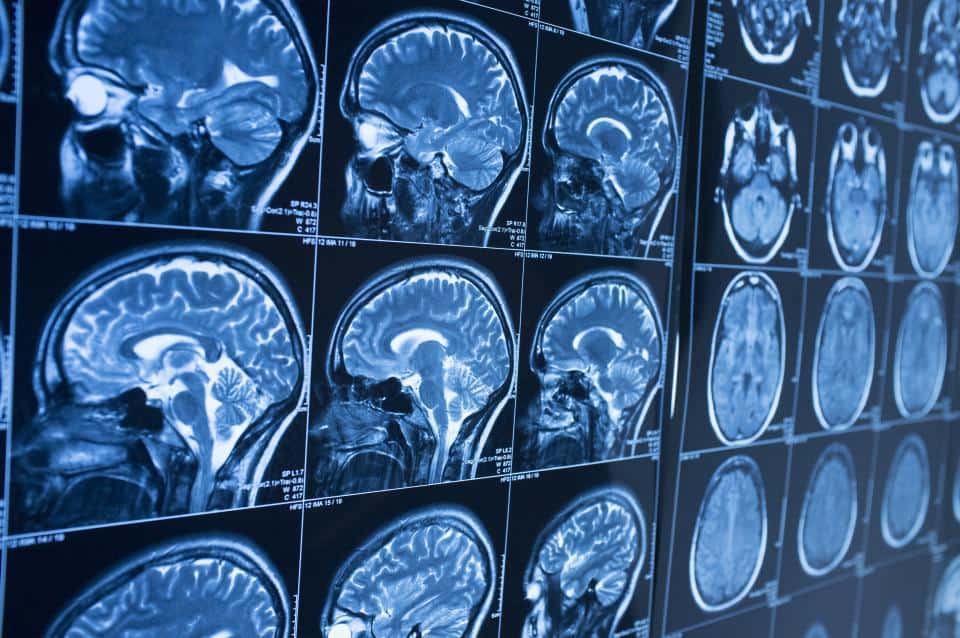
A new review of current literature, conducted by the Institute of Psychiatry, Psychology & Neuroscience (IoPPN) at King’s College London, has found that irregular responses in the brain to challenging tasks and mistakes could be key to understanding common links between abnormal behaviours in a range of mental illness and cognitive disorders.
The researchers reviewed studies that measured brief electrical tremors – naturally occurring electrical vibrations produced in areas at the front of the brain – using EEG, an electrophysiological monitoring method to record electrical activity on the scalp. By collating the findings from the studies they found that brain waves, known as ‘theta activity’, in people with conditions like anxiety, OCD, and ADHD are different following mistakes or challenging situations compared to the theta activity in those without any disorders.
The results, published today in Biological Psychiatry, show that disorders like anxiety, OCD and ADHD are strongly linked to brainwaves that oscillate in consistently divergent ways from the brains of those without any illness in the midfrontal region of the brain. The researchers suggest that with further investigation measurements of theta activity have the potential to improve diagnostic methods and the effectiveness of currently available treatments like CBT.
Oscillations in the theta frequency range are becoming increasingly recognised as related to behavioural and cognitive control, hallmarks of healthy behaviour, and disruption in these oscillations have been connected to a range of psychiatric illnesses. This study establishes that, in more than one type of mental illness, theta-related signals act in ways that diverge from the behaviours seen in the brains of those without any disorders.
In anxious individuals for example, research suggests that there is a significantly higher degree of frontal-midline theta activity compared to non-anxious individuals, and that could be associated with more reactive control modes of behaviour in the moment rather than proactive behaviours such as planning and preparation.
Many studies use what’s known as the Eriksen Flanker test to investigate this. A participant’s reaction time is measured by asking them to press a correct button while being presented with distractions. In anxious individual’s, their response time is negatively affected following a mistake as their focus is still on the mistake they just made rather than the task at hand. This could explain how the distraction of worries affects behaviour, as it depletes the required mental capacity needed for active maintenance of task rules and goals.
Comparatively, the review found recent studies of ADHD suggest that a dysregulation of theta signals when performing tasks resulted in a different type of negative effect on performance. Again, in tests that measure response times, the theta activity in individuals with ADHD rises either too early or too late for them to make an appropriate decision based on what they perceive. Similar levels of dysregulation are found in those with substance use disorder.
“From our review, we see that a healthy brain is one in which we see consistent levels of theta activity at the right moments. Theta activity in an anxious person for example is imbalanced over time compared to someone without anxiety. Someone experiencing anxiety, while able to take in new information, isn’t able to alter their cognitive behaviour effectively going forward because they are overfocussed on reacting immediately to environmental stimuli. Consistency and balance in these signals are thought to be essential for effective communication between brain regions, and appropriate and timely responses to our environment.”– Dr Grainne McLoughlin, Senior Lecturer at King’s IoPPN
Dr Scott Makeig, the study’s Lead Investigator from the University of California San Diego and who has long investigated ways to map and model frontal theta activity, said, “Frontal midline theta complexes in scalp-recorded brain electrical signals play essential roles in these transient theta network events which also seem to synchronize higher-frequency activities to regulate communication between brain executive, sensory and motor areas supporting quick behavioural responses and situational awareness of their consequences. This review suggests a role of abnormalities in these theta network events in producing a range of symptoms associated with mental illness.”
The investigators propose that this research has the potential to improve diagnostics and help shape future treatments.
Dr McLoughlin said, “Analysis of these brainwaves shows that certain brains may be programmed to respond suboptimally to the environment. Improving the consistency and balance of these signals in the brain may be an important first step as there is the potential to improve the effectiveness of treatments like Cognitive Behavioural Therapy (CBT). Our research shows that without consistency and balance in theta oscillations, it can be difficult to process new information and voluntarily guide behaviour. This research in time could help clinicians to have a greater consideration for how the brain responds to situations so that therapies like CBT can be applied more effectively.”
This study was possible thanks to funding from the Medical Research Council UK.
Midfrontal theta activity in psychiatric illness: an index of cognitive vulnerabilities across disorders (DOI10.1016/j.biopsych.2021.08.020) (Gráinne McLoughlin, Máté Gyurkovics, Jason Palmer, Scott Makeig) was published in Biological Psychiatry.
For more information, please contact Patrick O’Brien (Senior Media Officer)
from ScienceBlog.com https://ift.tt/3boGGHG

No comments:
Post a Comment